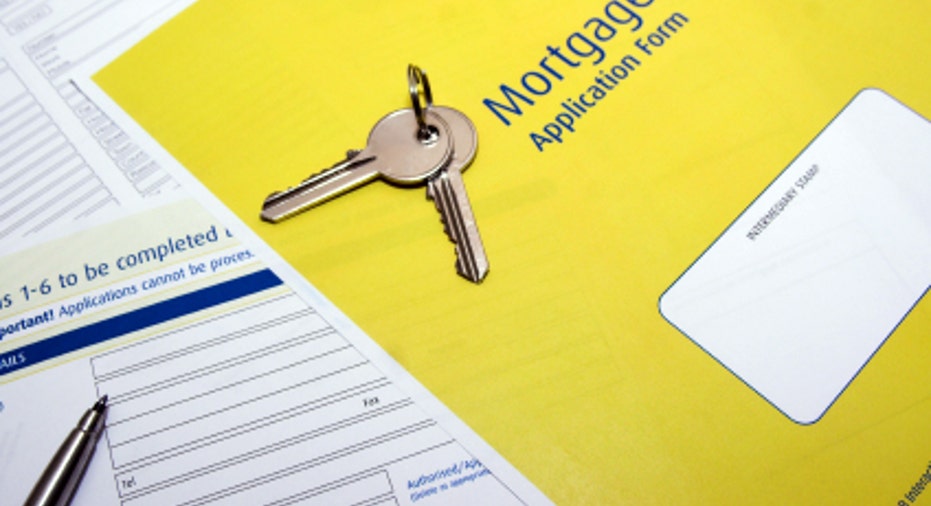Breaking up the Mortgage After Divorce

Love fades away. Marriages end. But the mortgage you agreed to pay when you were in love remains your responsibility -- until you find a way to divorce it.
The slow housing market and tight lending requirements represent a major obstacle for couples who want to untie the knot these days. Before the market crashed, divorcing couples could easily sell their homes, split the equity and purchase other homes for themselves. But times have changed.
"I remember 10 or 15 years ago, we were dividing up assets, and now we are dividing up liabilities," says Barry Finkel, a divorce attorney in Fort Lauderdale, Fla.
Usually, the mortgage is the biggest liability the couple has to split. And divorcing your mortgage isn't easy.
In the eyes of the mortgage lender, you remain married and liable for the mortgage unless you sell the house or refinance. For those who can't do either, there are options that should be explored carefully.
Whether going the traditional route or considering alternative ways to deal with your mortgage in a divorce, couples need to put their emotions aside and focus on the finances, says Chris Remedios, a certified divorce financial analyst at Financial Connections Group in Corte Madera, Calif.
"When people go through a divorce, they feel like they have given up so much, they can't stand one more thing," she says. "My job is to help them get past that emotional place and show them how this works for them in the long term."
Selling the House
If you can sell the house, that's the easiest way to put this joint debt behind you, says Ed Conarchy, a mortgage planner at Cherry Creek Mortgage in Gurnee, Ill.
"This house was meant for the two of you, but it ain't the two of you anymore," he says. "Sell it, pay off the mortgage and move on."
In the current market, that's easier said than done, especially for those who owe more on their mortgages than their houses are worth. They would have to either pay off the difference on the loan or opt for a short sale.
As with any other short sale, the credit score of both borrowers would be affected, Conarchy says. And the couple might still be liable for the difference between what the house sells for and what's owed on the mortgage, unless the bank agrees to release the borrowers from the liability at the time of the short sale.
Should You (or Can You) Keep the House and Refi?
Refinancing the loan under the name of one spouse is another easy fix -- under these conditions.
- The couple is not underwater on the mortgage.
- One spouse has sufficient credit and income to qualify for a refinance.
- The other spouse agrees to let go of the house.
But often, the wife or the husband can't afford to keep the house with one income, don't qualify to refinance the loan or both.
"You need to ask yourself: Can you afford (to keep) this house, and should you keep this house?" says Conarchy. "Think of it this way: If you were single, would you buy this home?"
Loan Assumption
Those who are determined to keep the house, but don't want to spend the money on a refinance, may also consider a loan assumption. They're rare these days, but it doesn't hurt to try. Depending on your loan, some lenders may let one spouse assume the mortgage. The spouse would still have to prove sufficient income to make the monthly payments.
"There are still some FHA loans that are assumable, but loan assumptions are few and far between," Conarchy says. "And with rates this low, you would have to consider the higher interest rates you'd be assuming."
Staying Married to the Mortgage
If you or your former spouse can't assume the loan, can't refinance, can't sell the home and don't have the money to pay off the mortgage, you'll have to come to an agreement. You can leave the mortgage as it is, and try your best to ensure your ex keeps up with the mortgage payments.
This is a risky approach because if the ex-spouse stops paying the mortgage, the credit records of both borrowers will become tainted, Conarchy says.
Finkel also doesn't recommend staying married to your mortgage when you divorce your spouse. But if there's no other resolution, at least add some layers of protection to the agreement, he says.
"For example, if the husband is supposed to be making alimony to the wife, he'll pay the mortgage directly," he says. And the agreement should spell out that if the spouse who keeps the house misses a mortgage payment, the house has to be sold or refinanced.
Can you get a Mortgage After the Divorce?
The divorce settlement and decree must spell out that the mortgage payments are the sole responsibility of the spouse who stays in the house. That's important because when you apply for a mortgage in the future, you will need to show lenders that settlement, as the mortgage will continue to show on your credit report.
Depending on the lender and what type of mortgage you apply for, you may be asked to submit cancelled checks from your ex-spouse showing you're not the one making the payments, says Matt Hackett, underwriting manager at Equity Now, a mortgage bank in New York City.
If you apply for a loan that will be sold to Freddie Mac, you'll have to submit 12 canceled checks unless you have transferred the title of the property to your ex -- which you shouldn't do since you are technically still liable for the debt on the house. Fannie Mae is more lenient on the rule and accepts the divorce decree as sufficient proof.



















